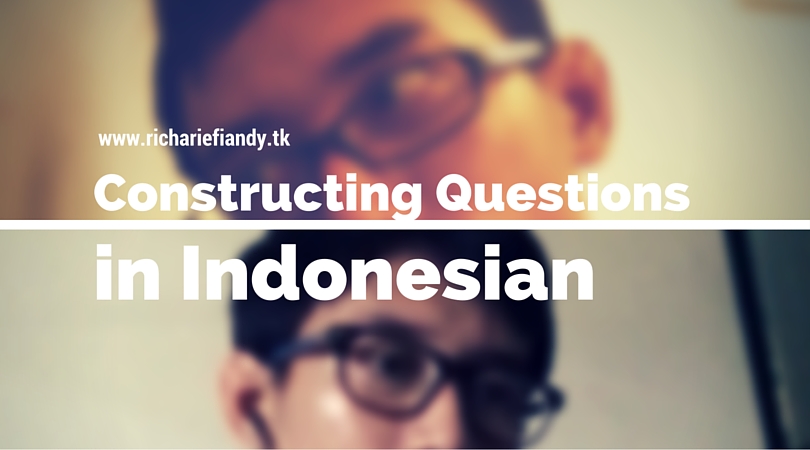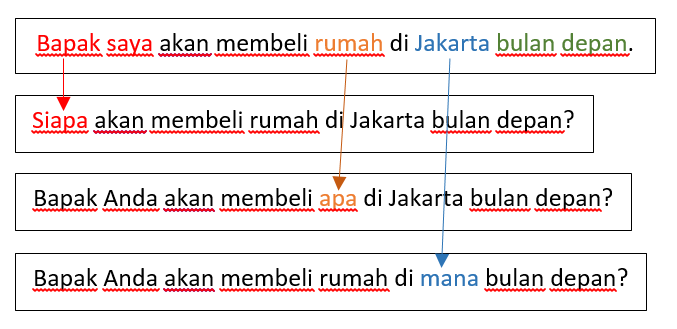
Constructing a question in Indonesian is very easy. As one of the easiest languages to learn, Indonesian has S-V-O word order (the same as English), and without verb inflections (verb changes due to the time and the number or gender of the subject). This means you do not need to mind the verbs or whether you need an extra verb (helping verb) for your question.
Yes/No Question
To make a written Y/N question in Indonesian you only have to put a “?” (Question mark) at the end of an affirmative sentence, instead of a full stop.
Kamu sudah pergi ke Jogja. (You have been to Jogja)
Kamu sudah pergi ke Jogja? (Have you been to Jogja?)
Very easy, right? When speaking, you just need to raise the intonation of the last part of the sentence.
Apakah
This is a question word needed to construct a formal Y/N question. How do you use it? Put it at the beginning of every Y/N question; as simple as that!
Apakah kamu sudah pergi ke Wellington? (Have you been to Wellington?)
Apakah kita akan selesaikan PR malam ini? (Will we finish our homework tonight?)
Apakah dia suka makanan Italia? (Does he like Italian food?)
WH (Information) Question
Even though constructing a question is indeed easy, to make a WH question is a tricky thing. It is not about where you put the verb or subject, but rather where you put the question word. As you know from the explanation above, Indonesian questions are basically affirmative sentences ended with a question mark. Indonesian WH questions require you to put question words right in the position of where the expected answer is supposed to be located. Let me give you an example.

Siapa, berapa, yang mana
These question words should be put where the answer is. Changing the position of the question words will render the question meaningless or may change the meaning at all. Look at these examples:

Apa
Apa is usually used to ask objects and is almost always put at the end or after the verb.
Q: Mereka mau makan apa untuk makan siang? (What do they want for lunch?)
A: Mereka mau makan pizza untuk makan siang. (They want pizza for lunch.)
Kapan, (di/ke/dari) mana
These question words can be positioned anywhere you want without worrying that you might change the meaning. Look at the examples.

Kenapa, Bagaimana
Don’t worry. These two always come in the beginning of a question.


You must be logged in to post a comment.